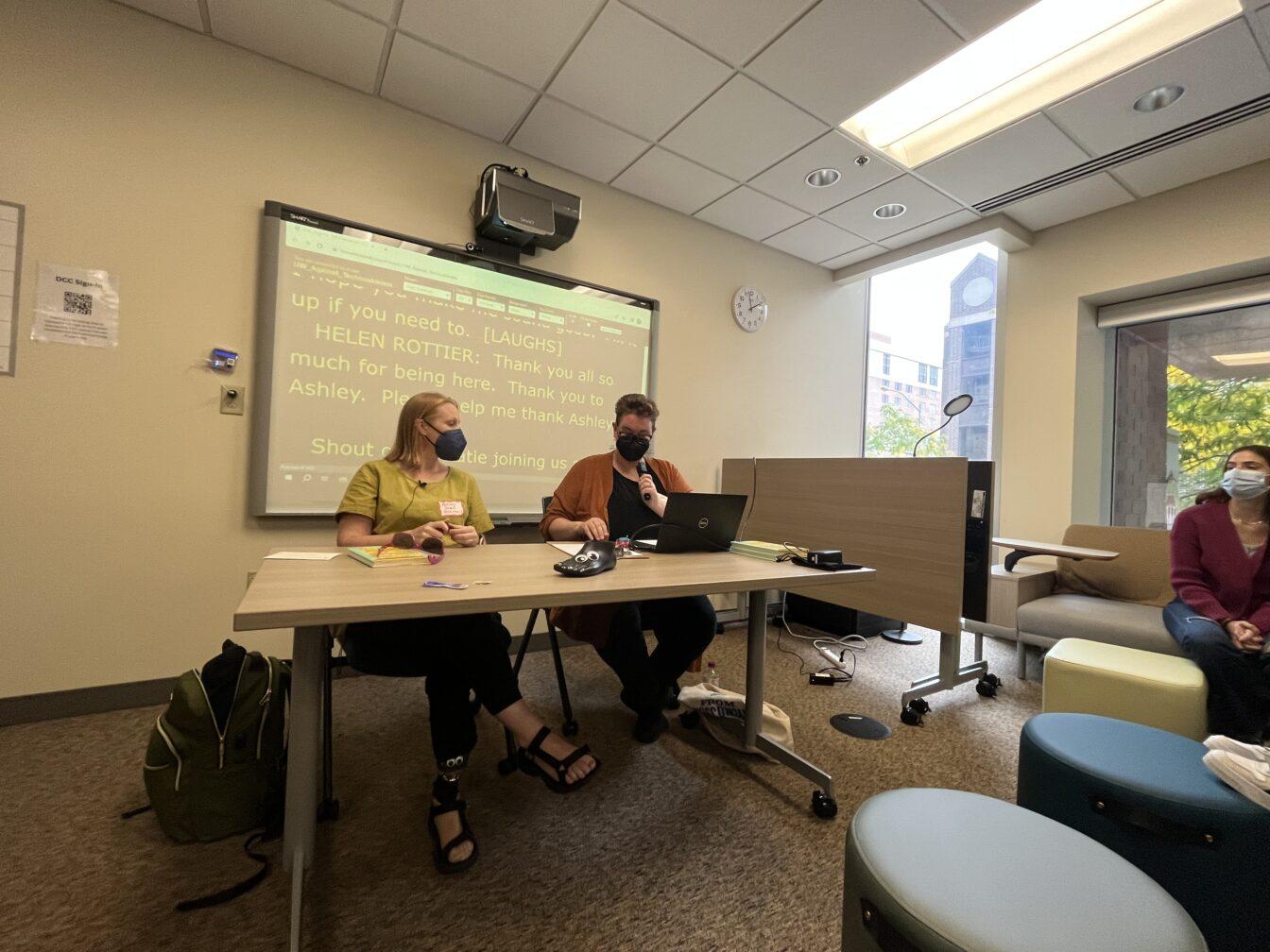Author of “Against Technoableism: Rethinking Who Needs Improvement” and associate professor at Virginia Tech Ashley Shew visited the University of Wisconsin’s McBurney Disability Resource Center Sept. 22 to discuss what it’s like to be a disabled person in today’s technology-based world.
Shew said technoableism is everywhere — it’s disguised in wheelchair-inaccessible buildings, not including closed captioning for videos and infantilization of disabled people.
“I think it involves a certain infantilization of disabled people, too, that you don’t deserve the same information, that we have to keep an eye on you and you have to be observed and surveilled and make sure you’re using things correctly in a neurotypical and nondisabled way,” Shew said.
Drug technology is also “deeply flawed and anti-autistic.” For example, Shew said when studying autistic mice models, scientists manipulate part of their brain so they don’t socialize with other mice. Since the mice don’t socialize with others, scientists say they’re “autistic.” But that’s not what happens to autistic people, Shew said.
Too often those who develop disabled technology, like those who make technology for autism, make it so autistic people seem more neurotypical when that’s not possible, Shew said. They don’t consult people with disabilities for the right reasons, which highlights the importance of disability technology made by those who are disabled.
“So often we’re told one thing will save us…but the people who saved my life are other disabled people who reprogrammed my phone,” Shew said.
Some may not realize there are types of disability technology disabled people made since they’re not marketed as such. For example, OXO Good Grips for kitchen utensils were made to make gripping easier for people with arthritis. And Snuggies, Shew said, were made with people who use a wheelchair in mind.
Disability technology also comes in the form of games such as Pokémon and Dungeons and Dragons, Shew said. Games like these provide social interaction for autistic people because players know their role and can follow a script.
Shew also spoke on disability justice. Typically, the lived experience of a disability is different from its typical depictions of a disabled white woman, Shew said. Disability justice also involves abolitionist policies.
“The largest holders of disabled people in the United States are prisons,” Shew said.
Those who are incarcerated will live without diagnoses and poor healthcare while in the prison system, so it’s important to be abolitionist in disability policies, Shew said.
While some of it was emotionally hard to write, like learning about the history of eugenics which focuses on the elimination of disability and therefore the elimination of disabled people, Shew said it’s important to her to talk about disabled expertise as she does in her book.


